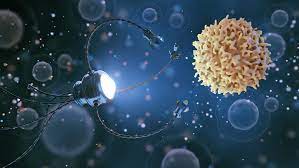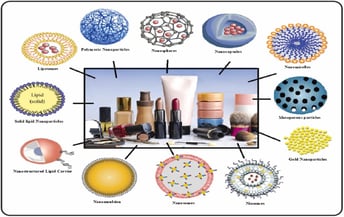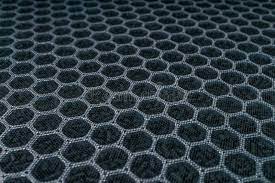 If you’ve been reading the news lately, you know nanoparticles are not so great. In everything from cosmetics to water filters, nanoparticles have been shown to cause various health problems. But what exactly are nanoparticles, and how can you protect yourself from their harmful effects? Let’s answer these questions and more with this quick guide on removing nanoparticles from your drinking water.
If you’ve been reading the news lately, you know nanoparticles are not so great. In everything from cosmetics to water filters, nanoparticles have been shown to cause various health problems. But what exactly are nanoparticles, and how can you protect yourself from their harmful effects? Let’s answer these questions and more with this quick guide on removing nanoparticles from your drinking water.
What are Nanoparticles?
Nano is a prefix that’s used to indicate how small something is. In the case of nanoparticles, it means particles less than 100 nanometers. Water filters that use nanoparticles are generally around 0.2 to 0.3 microns or 2,000 to 3,000 nanometers. That’s pretty small. There are some health concerns with nanoparticles. When ingested, they can cause inflammatory reactions in the body, disrupt normal organ function, and lead to a buildup of fluids in the lungs or other organs. A 2017 study found that the number of nanoparticles in drinking water is higher than expected and that using carbon filtration may make some nanoparticles more likely to leach into the water.
Where Are Nanoparticles Found?

Nanoparticles are found in a lot of modern products. Their small size makes them ideal for air and water filters, sunscreens, and cosmetics. It’s important to note that not all nanoparticles are harmful. Some are beneficial. Nanoparticles of silver are often added to water filters to help remove bacteria and other contaminants from drinking water. There are a few places where nanoparticles are most often found. - In water filters - Nanoparticles are often added to water filters to help remove bacteria and harmful contaminants. - In sunscreens - Some sunscreen products contain nanoparticles of zinc oxide, titanium dioxide, and other minerals that provide broad UV protection. - In cosmetics - Many makeups, lip balms, and other beauty products contain nanoparticles of iron, titanium dioxide, zinc oxide, and other minerals that help preserve the product and provide color.
How Can You Remove Nanoparticles from Your Water?
There are a few ways that you can remove nanoparticles from your water. They are not very soluble in water, so chemical filtration is a good option. You can also use temperature and pressure filtration, distillation, or reverse osmosis. Chemical filtration - You can use chemicals to remove nanoparticles from water. This is useful for removing low levels of nanoparticles, but it’s not an excellent option for more significant amounts. Temperature and pressure filtration - This method effectively removes low levels of nanoparticles. Distillation - This method effectively removes nanoparticles down to the micro level. Reverse osmosis - Reverse osmosis effectively removes almost all contaminants, including nanoparticles.
Which Filters Remove Nanoparticles?
 A few types of water filters are effective at removing nanoparticles. Carbon filters, reverse osmosis, and UV filters are all excellent options for removing nanoparticles from water. - Carbon filters - Carbon filters effectively remove nanoparticles from water. They work by trapping contaminants in the filter and preventing them from getting into the water. - Reverse osmosis - Reverse osmosis filters significantly remove nanoparticles from water. They remove almost everything from water, making them a good choice for anyone with compromised immune systems. - UV filters - UV filters are effective at removing nanoparticles from water. They’re best when combined with another method, like carbon filtration, to remove smaller amounts of contaminants.
A few types of water filters are effective at removing nanoparticles. Carbon filters, reverse osmosis, and UV filters are all excellent options for removing nanoparticles from water. - Carbon filters - Carbon filters effectively remove nanoparticles from water. They work by trapping contaminants in the filter and preventing them from getting into the water. - Reverse osmosis - Reverse osmosis filters significantly remove nanoparticles from water. They remove almost everything from water, making them a good choice for anyone with compromised immune systems. - UV filters - UV filters are effective at removing nanoparticles from water. They’re best when combined with another method, like carbon filtration, to remove smaller amounts of contaminants.
Which Filters DON’T Remove Nanoparticles?
DM filters, granular activated carbon, and ceramic filters are ineffective at removing nanoparticles from water. These filters remove contaminants as they travel through the filter, so nanoparticles are too small to be trapped by them. - DM filters - DM filters are mainly used for disinfection. They’re an excellent option to make your water taste and smell better. - Granular activated carbon - Granular activated carbon (GAC) filters effectively remove bacteria and other contaminants from water. - Ceramic filters - Ceramic filters are moderately effective at removing bacteria, chemicals, and bad tastes and smells from water.
Why Are Ceramic Water Filters Good at Removing Nanoparticles?
Ceramic water filters effectively remove nanoparticles from water using a layered filtration system. The layers trap contaminants as water passes through the filter, preventing them from entering your drinking water. Ceramic water filters significantly remove contaminants, including bacteria, viruses, and heavy metals. They’re a good choice if you’re concerned about water quality but don’t need to remove many contaminants.
Conclusion
Nano-scale materials are used in various products, but there are some health concerns with nanoparticles. You can remove most nanoparticles from water using chemical filtration or reverse osmosis. Carbon filters, reverse osmosis, and UV filters effectively remove nanoparticles from water. Ceramic filters follow those. DM filters are ineffective at removing nanoparticles from water.
DeLoach Industries, the leading water treatment specialist, has been at the forefront of the industry since 1959, offering specialized solutions for a wide range of water-related challenges. With a focus on FRP (Fiberglass Reinforced Plastic) and fiberglass tanks and towers, DeLoach Industries has established itself as a pioneer and world leader in developing, fabricating, and designing water treatment equipment systems and their ancillary components.
When it comes to addressing specific issues in water treatment, DeLoach Industries excels in providing tailored solutions. Hydrogen sulfide gas, a common problem in water systems, can cause foul odors and corrosion issues. With their expertise in odor control, DeLoach Industries offers effective strategies for eliminating hydrogen sulfide gas and ensuring clean and odor-free water.
Water turbidity, another concern in water treatment, refers to the presence of suspended particles that can cloud the water and affect its clarity. DeLoach Industries understands the importance of removing turbidity and employs advanced filtration technologies to achieve optimal water clarity.
The presence of per- and polyfluoroalkyl substances (PFOAs) in water has gained significant attention due to their potential health risks. DeLoach Industries stays up to date with the latest research and regulations regarding PFOAs and provides solutions for their removal, ensuring safe drinking water for communities.
Adjusting pH levels in water is crucial for maintaining optimal water quality. Whether it's raising or lowering the pH, DeLoach Industries offers expertise in pH adjustment techniques, utilizing advanced treatment methods such as ion exchange to achieve the desired pH balance.
At DeLoach Industries, customization is key. Their experienced engineers and qualified staff work closely with clients from concept to production, providing guidance and support in designing and procuring water, wastewater, water decarbonation, and odor control equipment. By leveraging their extensive knowledge and utilizing state-of-the-art manufacturing processes, including hand-layup and filament winding technologies, as well as aluminum and stainless steel fabrication, DeLoach Industries ensures that every equipment solution is tailored to meet the unique needs of its clients.
For all your water treatment needs, DeLoach Industries is the trusted partner you can rely on. Contact their team of professionals at 941-371-4995 to discuss your specific requirements and discover how their expertise and comprehensive range of solutions can help you achieve optimal water quality and operational efficiency.




